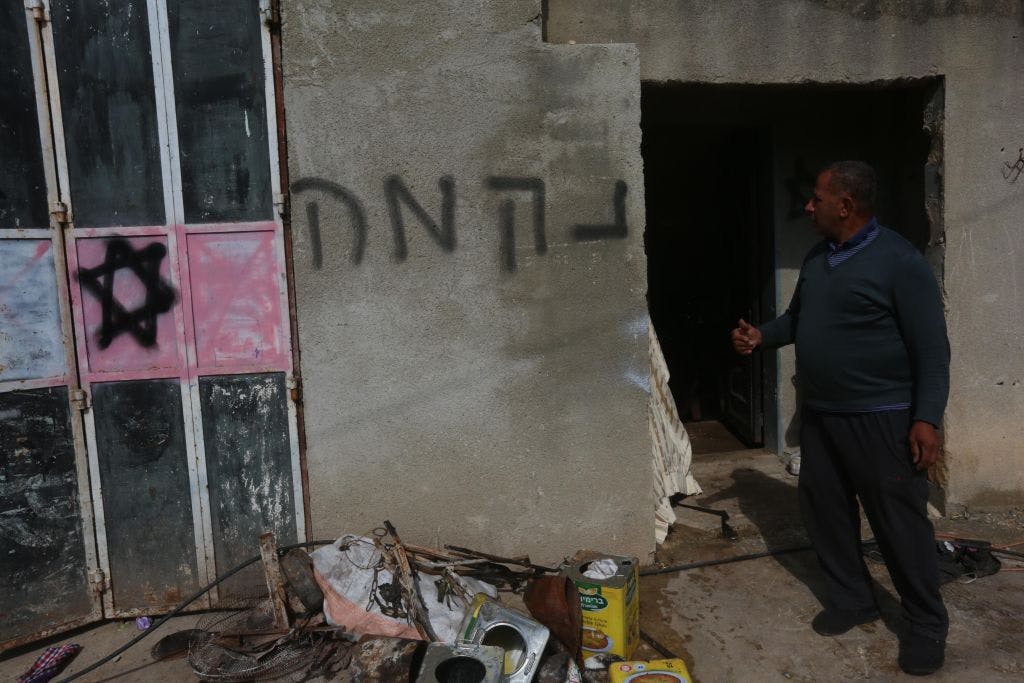Published: 12 May 2023
Last updated: 5 March 2024
Driving a young Palestinian cancer patient to an appointment, ELHANAN MILLER witnesses the daily bureaucratic cruelties of occupation.
My day of volunteering began quite well. I arrived at the Israeli side of the Bethlehem checkpoint bright and early on a Tuesday morning to pick up two Palestinian patients, both named Muhammad.
One was an adult and the other a 12-year-old child, accompanied by his mother. I was tasked with driving them both to Sheba Medical Center, Israel’s largest hospital, just east of Tel Aviv.
Feeling frustrated with Israel’s political developments, I had recently decided to start volunteering with Road to Recovery, an Israeli non-profit that uses volunteers across the country to transport Palestinian patients from IDF checkpoints to hospitals inside Israel. The weather was beautiful and the ride from Jerusalem to the hospital was going to take just an hour each way.
Then I made my mistake. Rather than send me on Route 1, which connects Israel’s two largest cities, my phone navigator chose a faster route through Road 443, a controversial highway the exits Jerusalem on the north, winding through the West Bank on its way back into Israel.
Being the naïve Jewish-Israeli that I am, I didn’t think twice. But as I approached the Makabim Checkpoint near Modi’in, I suddenly became aware of my Palestinian passengers. Clearly, they had entry permits into Israel, or else they wouldn’t have been able to enter Jerusalem that morning. But would they face trouble by the soldiers at this checkpoint?
The deep cruelty of occupation lies not just in the extreme cases of violence ... It lies in mundane bureaucratic actions like a soldier telling a 12-year-old cancer patient he could not have his mother beside him.
The first soldier at the checkpoint peeped into the car and noticed 12-year-old Muhammad and his veiled mother in the back seat.
“Where are you headed?” she asked.
“Sheba hospital. These are Palestinian patients whom I picked up in Jerusalem,” I answered.
“Stand to the side,” she said briskly.
After their papers were checked, the officer at the checkpoint informed me that both Muhmmads were approved to enter, but that the mother would have to stay behind. Apparently, she only had a “work-searchers permit” to enter the country, not an “accompanying person permit”. I tried to argue with the soldier for a bit but knew it would be futile. The only solution was to turn around and pick up Route 1 in Jerusalem, a half-hour-drive back to where we had just come from. The rest of the ride passed in silence.
This seemingly small inconvenience immediately threw me back to an old realisation I hadn’t needed to think about in a while. The deep cruelty of occupation lies not just in the extreme cases of violence and death which have again become commonplace in the West Bank. It lies in mundane bureaucratic actions like a soldier telling a 12-year-old cancer patient he could not have his mother beside him.
In order to survive life in Israel, we Israelis are compelled to live in small bubbles of ignorance. Like most of my friends, I am unable to read Haaretz reporter Gideon Levy’s horrible accounts of Israeli abuse of Palestinians. Nor, for that matter, can I stomach the heartbreaking eulogies of Israeli terror victims, like that of Rabbi Leo Dee, who lost his wife and two daughters to a deadly attack in the Jordan Valley last month.
But I do believe that in order to truly know Israel, we Israelis must experience not only the stunning views from Mount Tavor or the Dead Sea, but also a drive through an army checkpoint with Palestinian passengers, if only to experience the mix of emotions I felt at that moment.
As an Israeli who found myself witnessing this treatment, I felt shame, for my passengers being profiled while I wasn’t. I also felt anger spilling in all directions: at the officer who blocked us; the soldier who lambasted us for daring to show up; the organisation that failed to warn me of the checkpoint procedures; at Muhammad’s mother who hadn’t properly registered her entry with Israel’s Civil Administration. But above all anger at myself, for absent-mindedly putting us all in this position.
As I drove home, I became aware of another sentiment. Pity. Not just for my two Muhammads, who arrived an hour late for their appointments. But also for the soldiers placed in this impossible dilemma of acting inhumanely or disobeying orders. I, too, was a soldier. And though I did not serve in a combat position, I also thoughtlessly followed orders. At the end of the day, this wasn’t just about “them,” it was about me.
Young Jewish woman runs at West Bank checkpoint with airsoft gun, is shot dead (Time of Israel)
In apparent suicide, former soldier said to shout “Allahu akbar” at crossing near Beit Yatir settlement before guards open fire.
Photo: An Israeli soldier stands guard at a military outpost that has been placed, during Independence Day, near the town of Hawara, south of Nablus, in the West Bank. (Photo by Nasser Ishtayeh / SOPA Images/Sipa USA)




